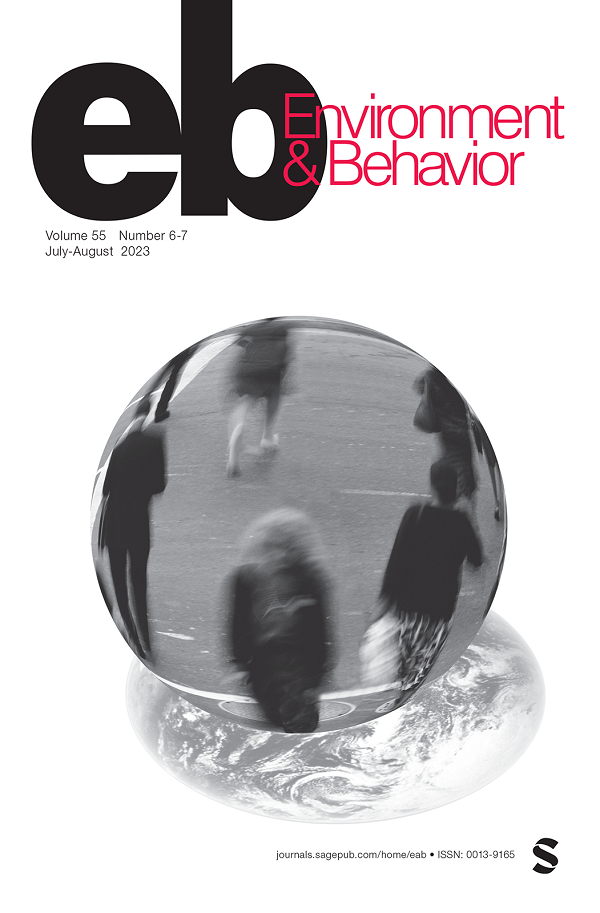获得环境认知替代预测亲环境活动家的行为
IF 4.6
2区 心理学
Q1 ENVIRONMENTAL STUDIES
引用次数: 2
摘要
我们扩展了获得环境现状的认知替代品(即人们想象与自然的可持续关系的能力)在激励环保集体行动中的合理作用。使用具有代表性的加拿大人年龄、性别和种族样本(N = 1029)我们评估了获得环境认知替代品、政治化的环境认同和参与环保活动家行为的意愿之间的关联。此外,我们超越了自我报告的行为,让参与者有机会写并签署一封致加拿大环境和气候变化部长的环保信。我们的研究结果表明,获得认知替代品与更强的政治化环境认同、更愿意参与环保活动家行为以及撰写和签署环保信的可能性增加有关。所有方法和分析都遵循我们的预注册,所有材料和数据都是公开的。本文章由计算机程序翻译,如有差异,请以英文原文为准。
Access to Environmental Cognitive Alternatives Predicts Pro-Environmental Activist Behavior
We expand on the plausible role of access to cognitive alternatives to the environmental status quo (i.e., the ability of people to imagine what a sustainable relationship with nature would look like) in motivating pro-environmental collective action. Using a representative sample of Canadians on age, gender, and ethnicity (N = 1,029) we evaluate the associations between access to environmental cognitive alternatives, politicized environmental identity, and willingness to engage in pro-environmental activist behavior. Additionally, we move beyond self-reported behavior by giving participants the opportunity to write and sign a pro-environmental letter to the Canadian Minister of the Environment and Climate Change. Our results suggest that access to cognitive alternatives is associated with stronger politicized environmental identity, greater willingness to engage in pro-environmental activist behavior, and increased likelihood of writing and signing a pro-environmental letter. All methods and analyses follow our preregistration and all materials and data are openly available.
求助全文
通过发布文献求助,成功后即可免费获取论文全文。
去求助
来源期刊

Environment and Behavior
Multiple-
CiteScore
13.30
自引率
1.80%
发文量
13
期刊介绍:
Environment & Behavior is an interdisciplinary journal designed to report rigorous experimental and theoretical work focusing on the influence of the physical environment on human behavior at the individual, group, and institutional levels.
 求助内容:
求助内容: 应助结果提醒方式:
应助结果提醒方式:


